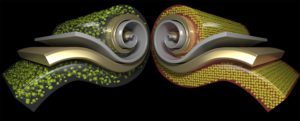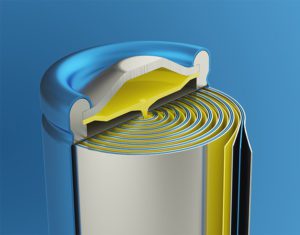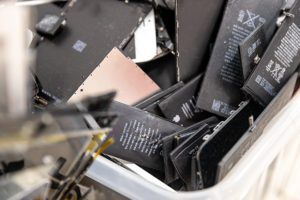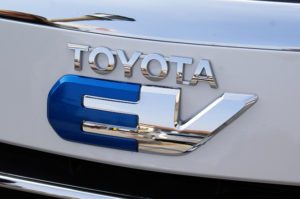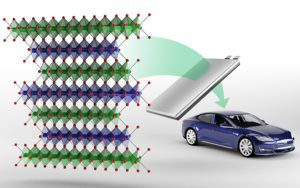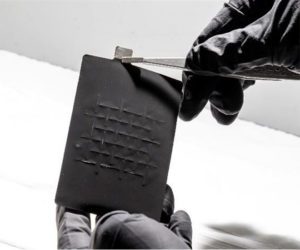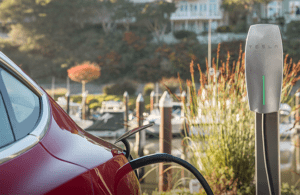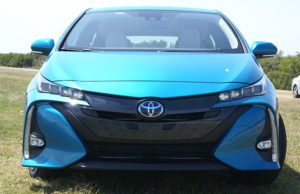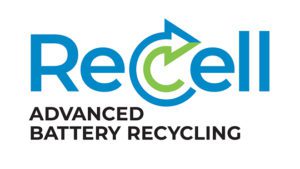Researchers at the DOE’s Oak Ridge National Laboratory (ORNL) have developed a new method for producing cathodes for lithium-ion batteries by relying on hydrothermal synthesis, which eliminates the need to use cobalt, making the process quicker, less wasteful and less toxic. They describe their work in: “Hydrothermal synthesis of Co-free NMA cathodes for high-performance Li-ion… Read more »
Search Results Found For: "ORNL"
The high cost of cobalt cathodes and some potential alternatives
According to an article published in Advanced Energy Materials by researchers at the DOE’s Oak Ridge National Laboratory (ORNL), cobalt is currently the most expensive cathode material used in lithium-ion batteries. The DOE says cobalt accounts for about a quarter of the cost of a typical battery, and was the most expensive cathode material in… Read more »
TdVib works to commercialize acid-free process for recovering rare earths from electronic waste
Researchers at the Critical Materials Institute (CMI), a DOE Innovation Hub led by the Ames Laboratory, have developed a novel way to extract rare earth elements from the high-powered magnets in electronic waste, using a water-based process. Now Iowa-based electromagnetics specialist TdVib has licensed the technology, and hopes to commercialize it. Companies often shred items… Read more »
Toyota actively lobbies against support for EVs
Toyota has earned a place in the history of transport electrification. The Japanese automaker’s introduction of the Prius hybrid in 1997 was a milestone. Since then, the company has sold some 15 million hybrids worldwide, and has gradually added hybrid powertrains to more of its offerings—a majority of Toyota and Lexus models are now available… Read more »
New class of cobalt-free cathodes could enhance energy density of Li-ion batteries
Oak Ridge National Laboratory (ORNL) researchers have developed a new family of cathodes with the potential to replace the costly cobalt-based cathodes typically found in today’s lithium-ion batteries. The new class, called NFA (nickel, iron, aluminum), is a derivative of lithium nickelate that’s used as a cathode material. These novel cathodes are designed to be… Read more »
Soteria licenses battery tech designed to eliminate thermal runaway
Soteria Battery Innovation Group has exclusively licensed and optioned a technology developed by the DOE’s Oak Ridge National Laboratory (ORNL) designed to eliminate thermal runaway in Li-ion batteries due to mechanical damage. The technology complements Soteria’s existing battery safety technology. Soteria Battery Innovation Group is a technology development and licensing company that has formed a… Read more »
New composite material increases current capacity to rev up EV efficiency and range
Scientists at Oak Ridge National Laboratory (ORNL) have used new techniques to create a composite that they claim increases the current capacity of copper wires, providing a new material that can be scaled for use in ultra-efficient, power-dense EV traction motors. The research is aimed at improving the performance and life of components such as… Read more »
Tesla’s Model 3 includes V2G capability…or does it?
Lately we’ve been hearing a lot of news about bidirectional charging, which supports vehicle-to-grid (V2G) applications and other nifty stuff. In January, Wallbox announced what appears to be the first bidirectional charger for the home market. Fermata Energy has several V2X projects in the works, including a partnership with Nissan. And ORNL recently demonstrated bidirectional… Read more »
Toyota provides nearly 24,000 licenses royalty-free for hybrid tech
Toyota will grant royalty-free licenses on 23,740 patents it holds for hybrid technologies. For a fee, the company will also provide technical support to manufacturers that use Toyota’s tech, including motors, batteries, power control units and system controls. Since 2015, Toyota has offered 5,680 patents related its fuel cell EVs. The new batch of patents… Read more »
DOE launches ReCell Center to improve battery recycling
The U.S. Department of Energy (DOE) has launched a lithium-ion battery recycling center, the ReCell Center, at DOE’s Argonne National Laboratory in Illinois. The ReCell Center’s goal is to develop profitable methods to dramatically improve battery recycling rates. DOE is funding the ReCell Center with $15 million over three years. The ReCell Center will have… Read more »




